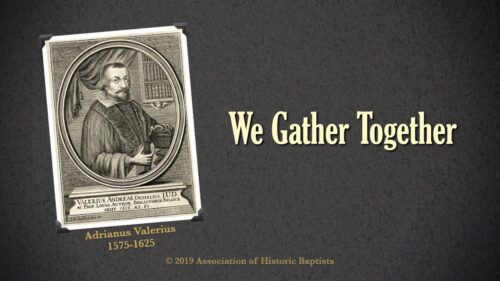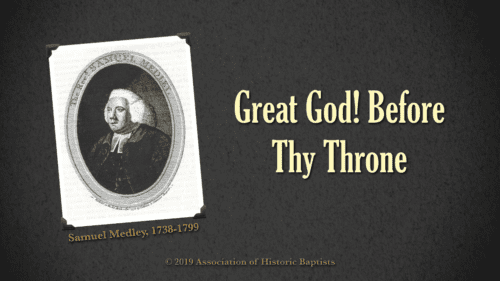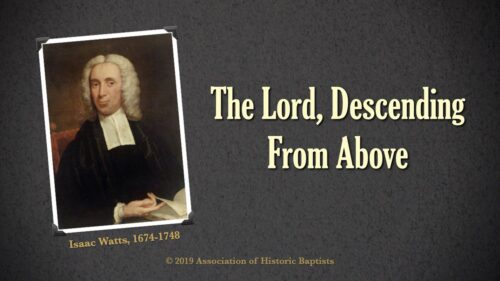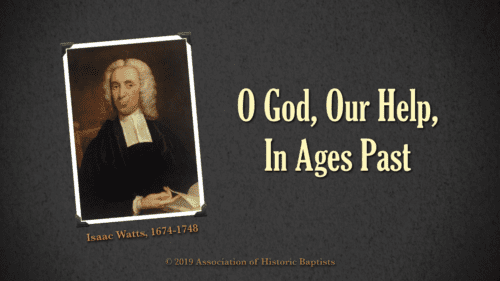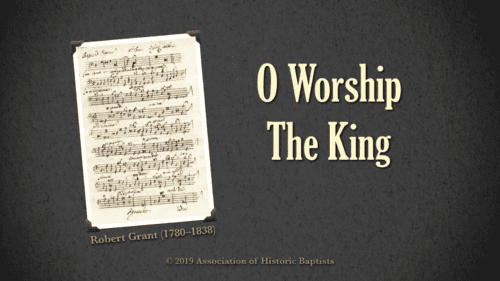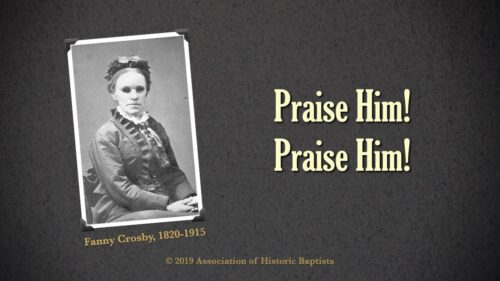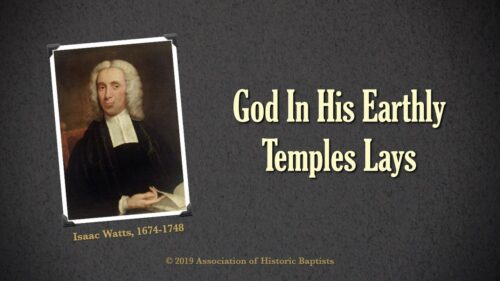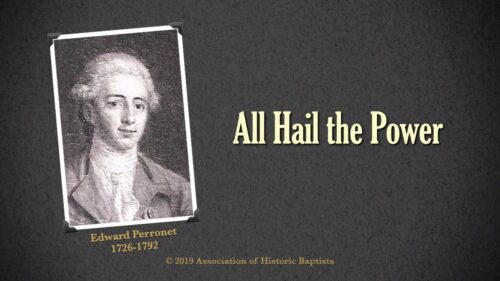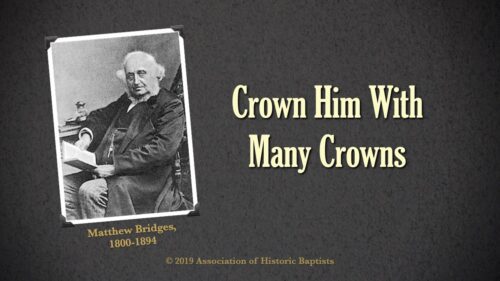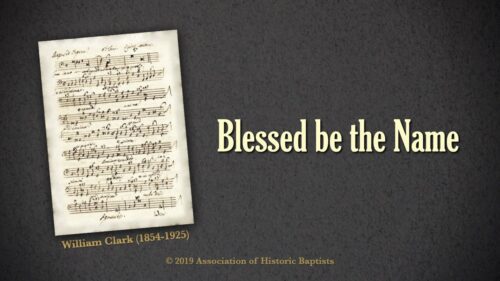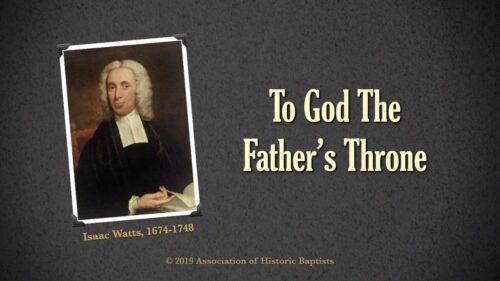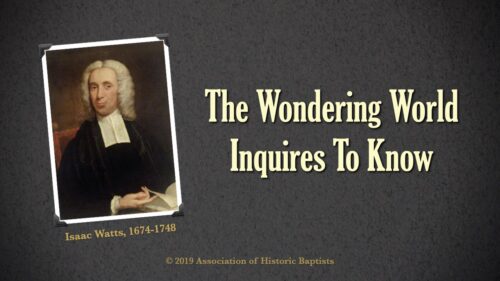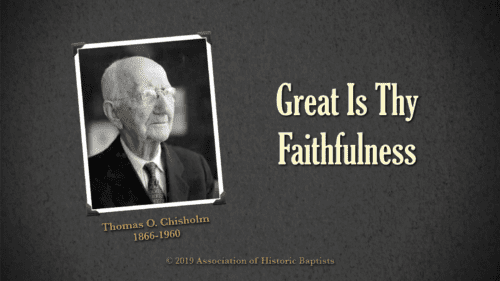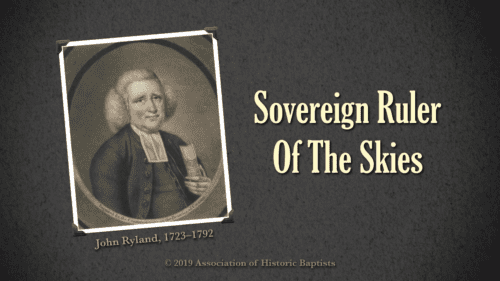-
Living, He Loved Me; Dying, He Saved Me
1 One day when Heaven was, Filled with His praises, One day when sin, Was as black as could be; Jesus came forth to be, Born of a virgin, Dwelt among men, My Example is He! 2 One day they led Him, Up Calvary’s mountain, One day they nailed Him, To die on the tree; Suffering anguish, Despised and rejected: Bearing our sins, My Redeemer is He! 3 One day they left Him, Alone in the garden, One day He rested, From suffering free;
-
How Pleasant, How Divinely Fair
1 How pleasant, how divinely fair, O Lord of Hosts, Thy dwellings are! With long desire my spirit faints, To meet the assemblies of Thy saints. 2 Blest are the saints who sit on high, Around the throne of Majesty; Thy brightest glories shine above, And all their work is praise and love.
-
To The Great Godhead
To the great Godhead, Father, Son, And Holy Spirit, Three-in-One, Be glory, praise, and honor given, By all on earth, and all in heaven.
-
The Wondering World Inquires To Know
1 The wondering world inquires to know, Why I should love my Jesus so; “ What are His charms,” say they, “above, The objects of a mortal love?” Yes, my Beloved to my sight, Shows a sweet mixture, red and white: All human beauties, all divine, In my Beloved meet and shine. 2 White is His soul, from blemish free; Red with the blood He shed for me; The fairest of ten thousand fairs; A sun amongst ten thousand stars. His head the finest gold excels; There wisdom in perfection dwells; And glory, like a crown, adorns, Those temples once beset with thorns. 3 Compassions in His heart are found, Hard by the signals of His wound; His sacred side no more shall bear,
-
To God The Father’s Throne
To God the Father’s throne, Perpetual honors raise; Glory to God the Son; To God the Spirit praise; And while our lips their tribute bring, Our faith adores the name we sing.
-
The Honors Of Your Lord And King
1 Beloved of the Lord most high, Let praises be your sweet employ; Ye sons of God, rejoice, and sing, The honors of your Lord and King. Ye sons of God, rejoice, and sing, The honors of your Lord and King. 2 Your heavenly Father ever lives, And all His choicest treasure gives; To you, the favorites of His heart, Nor will He ever with you part. To you, the favorites of His heart, Nor will He ever with you part. 3 Whatever be your lot below, Though you thru gloomy paths may go, Your heavenly Father is your Light, And He will guide your footsteps right. Your heavenly Father is your Light, And He will guide your footsteps right.

